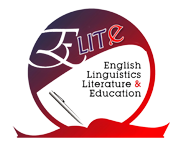A Comparative Study on English Speaking Skill between Interpersonal and Intrapersonal Students in the Third Semester of English Teaching Learning Program of STAIN Pamekasan
 Abstract views: 1131
,
Abstract views: 1131
,
 PDF downloads: 631
PDF downloads: 631
Abstract
Students' different intelligence affect different academic achievement, speaking skill as one of the required skills that have to be mastered by students must also be influenced by students' intelligence. This study was mainly purposed to investigate whether there is a significant difference between interpersonal students and intrapersonal students on their English speaking skills. This study uses Ex-post facto or causal-comparative with a quantitative research approach. The population was 216 students of all third-semester students of English Teaching Learning Program of STAIN Pamekasan, the sample of 50 students (25 interpersonal students and 25 intrapersonal students) were taken away by using stratified random sampling. Two research instruments were utilized. The questionnaire was spread out to identify the students' intelligence, while documentation was used to know the result of the summative test of English speaking skills. The research result reveals there is a significant difference between interpersonal students and intrapersonal students in the third semester of the English Teaching Learning Program of STAIN Pamekasan on their English speaking skills. The t-value of 3.86 is significantly higher than the t-table (significant level 5%) that is only 2.01. (3.86 > 2.01; Level of significance 5%, df = 50). Interpersonal students are better on English speaking skills because they have special characteristics, such as love to interact, have good communication skills, strong empathy, and good sociability. They are usually outgoing and also easily adaptable make them quick to learn.
Downloads
References
Arikunto, S. (2006). Prosedur Penelitian: Suatu Pendekatan Praktik (7th ed.). Jakarta: Rineka Cipta.
Ary, D., Jacobs, L. C., Razavieh, A., & Ary, D. (2010). Introduction to research in education (8th ed). Belmont, CA: Wadsworth.
Aziz, K., Joharman, & Suryandari, K. C. (2013). Hubungan Antara Kecerdasan Interpersonal, Berpikir Kreatif, dan Hasil Menulis Siswa Kelas V Sd Negeri di Kabupaten Kebumen. Kalam Cendekia PGSD Kebumen, 1(3).
Baum, S., Vens, J., & Slatin, B. (2005). Multiple Intelligences in the Elementary Classroom (A Teacher’s Toolkit). New York: Teachers College Press.
Brown, H. D. (2007). Principle of Language Learning and Teaching (5th ed.). San Fransisco: Pearson Education Inc.
Cambell, L., & Cambell, B. (1999). Multiple intelligences and Student Achievement: Success Story from Six Schools. Virginia: ASCD.
Faisal, S. (2012). Hubungan antara Kecerdasan Interpersonal dengan Perilaku Altruisme pada Siswa Kelas X di MAN 3 Kediri (Thesis). Universitas Islam Negeri Maulana Malik Ibrahim.
Gainau, M. B. (2009). Keterbukaan Diri (Self Disclosure) Siswa dalam Perspektif Budaya dan Implikasinya bagi Konseling. Jurnal Ilmiah Widya Warta, 33(1), 95–112.
Gardner, H. (1983). Frames of Mind. New York: A Member of the Perseus Books Group.
Gardner, R. C. (1985). Social Psychology and Second Language Learning: The Role of Attitudes and Motivation. London: E. Arnold.
Latief, M. A. (2011). Research Methods on Language Learning: An Introduction. Malang: University Negeri Malang Press.
Logsdon, A. (2013). Learning Disabilities. Retrieved March 6, 2020, from http://learningdisabilities.about.com/od/resourcesresearch /qt/interpersonal.htm
Nelson, K. N. (1998). Developing Students Multiple Intelligences. New York: Scholastic Press.
Pishghadam, R. (2009). A Quantitative Analysis of the Relationship between Emotional Intelligence and Foreign Language Learning. Electronic Journal of Foreign Language Teaching, 6(1), 31–41.
Pritchard, A. (2009). Ways of Learning. London: Routledge.
Richards, J. C., & Renandya, W. A. (2002). Methodology in Language Teaching: An Anthology of Current Practice. Cambridge: Cambridge University Press.
Setyono, I. D. (2009). Pengaruh Kecerdasan Intrapersonal dan Media Pembelajaran Powerpoint terhadap Prestasi Belajar Matematika (Skripsi). Universitas Muhammadiyah Surakarta.
Seyedi, G. (2012). The Impact of Emotional Intelligence on Iranian EFL Learners’ Listening Proficiency. IJSER, 2(7), 1–11.
Suspriatin, N. (2013, December 4). A Third Semester Students of TBI [Interview by Phone].
Ulviana. (2011). Improving Students’ Speaking Ability through Communication Games (Thesis). UIN Syarif Hidayatullah Jakarta.
Widdowson, H. G. (1978). Teaching English as Communication. New York: Oxford University Press.
Working with Emotional Intelligence Summary. (2020). Retrieved March 6, 2020, from SuperSummary website: http://www.supersummary.com/working-with-emotional-intelligence/summary/
The journal uses an Open Access policy under a Creative Commons Attribution-NonCommercial 4.0 International License. Authors who publish with this journal agree to the following terms:
- Authors retain copyright and grant the journal right of first publication with the work simultaneously licensed under a Creative Commons Attribution License that allows others to share the work with an acknowledgment of the work's authorship and initial publication in this journal.
- Authors are able to enter into separate, additional contractual arrangements for the non-exclusive distribution of the journal's published version of the work (e.g., post it to an institutional repository or publish it in a book), with an acknowledgment of its initial publication in this journal.
- Authors are permitted and encouraged to post their work online (e.g., in institutional repositories or on their website) prior to and during the submission process, as it can lead to productive exchanges, as well as earlier and greater citation of published work.
















